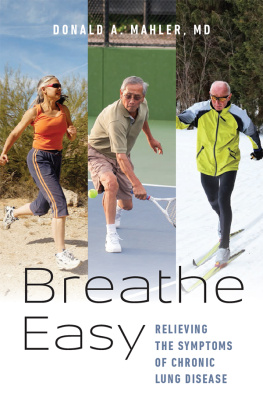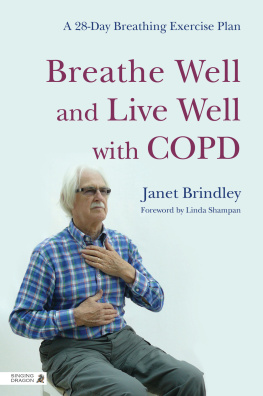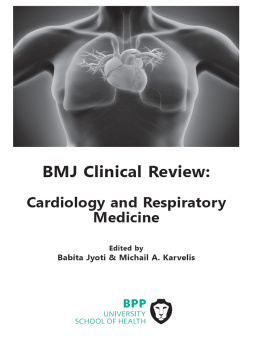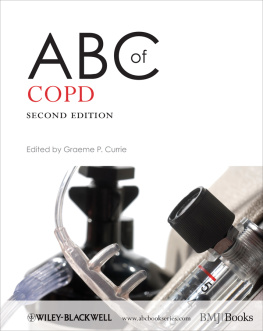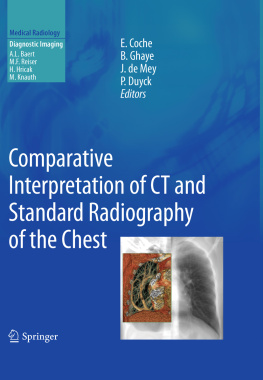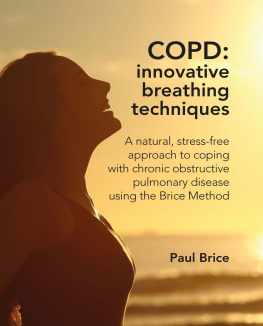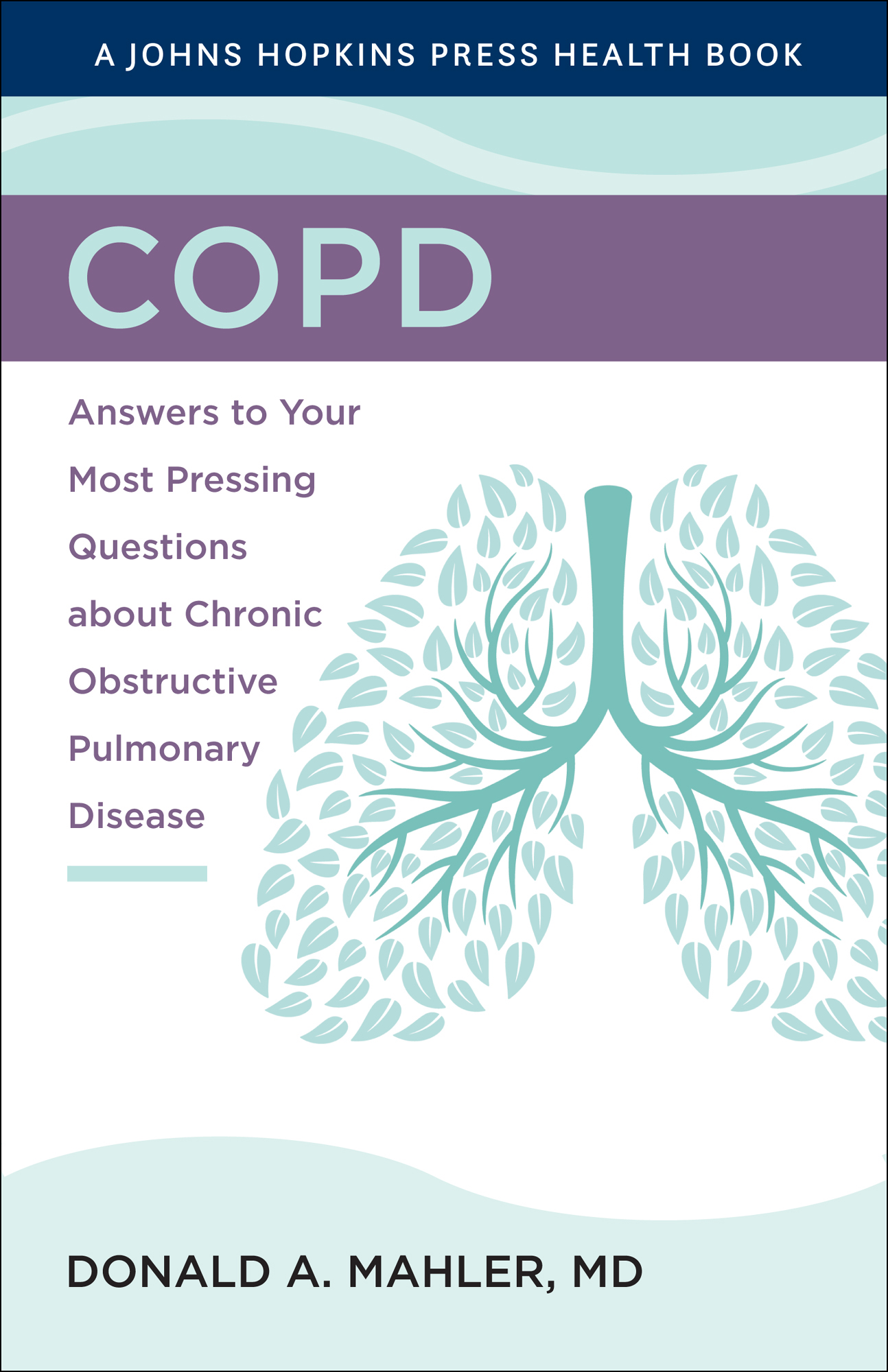Contents
Guide
COPD
A JOHNS HOPKINS PRESS HEALTH BOOK

COPD
ANSWERS TO YOUR MOST PRESSING QUESTIONS ABOUT CHRONIC OBSTRUCTIVE PULMONARY DISEASE

DONALD A. MAHLER, MD

JOHNS HOPKINS UNIVERSITY PRESS
BALTIMORE
Note to the Reader: This book is not meant to substitute for medical care, and treatment should not be based solely on its contents. Instead, treatment must be developed in a dialogue between the individual and his or her physician. Our book has been written to help with that dialogue.
Drug dosage: The author and publisher have made reasonable efforts to determine that the selection of drugs discussed in this text conform to the practices of the general medical community. The medications described do not necessarily have specific approval by the US Food and Drug Administration for use in the diseases for which they are recommended. In view of ongoing research, changes in governmental regulation, and the constant flow of information relating to drug therapy and drug reactions, the reader is urged to check the package insert of each drug for any change in indications and dosage and for warnings and precautions. This is particularly important when the recommended agent is a new and/or infrequently used drug.
Financial disclosure: None reported.
2022 Johns Hopkins University Press
All rights reserved. Published 2022
Printed in the United States of America on acid-free paper
9 8 7 6 5 4 3 2 1
JOHNS HOPKINS UNIVERSITY PRESS
2715 North Charles Street
Baltimore, Maryland 21218-4363
www.press.jhu.edu
L IBRARY OF C ONGRESS C ATALOGING-IN- P UBLICATION D ATA
Names: Mahler, Donald A., author.
Title: COPD : answers to your most pressing questions about chronic obstructive pulmonary disease / Donald A. Mahler, MD.
Description: Baltimore, Maryland : Johns Hopkins University Press, 2022. | Series: A Johns Hopkins Press health book | Includes index.
Identifiers: LCCN 2021018630 | ISBN 9781421443355 (hardcover) | ISBN 9781421443362 (paperback) | ISBN 9781421443379 (ebook)
Subjects: LCSH: LungsDiseases, Obstructive. | LungsDiseases, ObstructiveMiscellanea.
Classification: LCC RC776.O3 M34 2022 | DDC 616.2/4dc23
LC record available at https://lccn.loc.gov/2021018630
A catalog record for this book is available from the British Library.
Special discounts are available for bulk purchases of this book. For more information, please contact Special Sales at .
To Arlene~
May the journey continue
To Jodi, Bethany, Ryan, and Brian~
May you LTD
To Emma, Jack, Bennett, Parker, Hadley, and Mac~
May you improve the world
Preface
The two most important days in your life are the day you are born and the day you find out why.
Mark Twain (18351910), writer, humorist, entrepreneur, publisher, and lecturer
When first diagnosed with COPD, most individuals and their family members have limited knowledge about the condition. In fact, the meaning of these four lettersCOPDis often a mystery that requires an explanation. Afterward, patients along with their loved ones are eager to learn as much as possible about COPD. My interactions with people who have COPD reveal that spouses, partners, and adult children are quite interested to learn about this disease so that they can help their loved one. Questions typically focus on (1) What is COPD? (2) What treatments can help me or a loved one breathe easier? and (3) Will my COPD get worse?
A Google search for COPD returns limited authoritative information written to help the estimated 30 million Americans with COPD learn more about their condition and what to do about it. I wrote this book to bridge that information gap and to address the common questions posed by patients in my practice. My vision for the book is to provide practical and current information that positively affects the daily lives of those living with COPD and their families.
The chapters in this book each address a specific question asked by one or more individuals in my practices at Dartmouth-Hitchcock Medical Center (19822014) and at Valley Regional Hospital (2014 to the present). Each chapter begins with a quotation related to the question posed in the chapter title. Next, a vignette, or story, provides a brief description of a situation experienced by a patient in my practice. Names and other details have been changed to protect patient privacy. Both basic and advanced information then addresses each of the chapter questions. Key points near the end of the chapter highlight what is important. Finally, a follow-up vignette illustrates how the material in the chapter applies to our hypothetical patient.
All chapters have been revised multiple times based on comments of two individuals living with COPD and a respiratory therapist. I am grateful for the insights provided by Ms. Karen Deitemeyer, who is active in educating health care professionals and organizations about COPD from a patients perspective. We met in 2018 as members on a panel, What Is It Like to Live with COPD?, at a national respiratory meeting. I also appreciate the comments and suggestions of Ms. Susan McNeely, who has shared her experiences with COPD at medical appointments with me for more than 15 years. Finally, my sincere thanks to Mr. Lou Milanesi, an exceptional respiratory therapist and a friend. We worked together for several years at Dartmouth-Hitchcock Medical Center. Lou is a high-energy person with a passion for educating anyone interested in learning about respiratory disease. From my perspective, their collective input has helped to provide practical information that can positively affect the daily lives of the readers.
Although the book does not include a comprehensive reference list about COPD, the following resources provide information about understanding COPD along with strategies and guidelines for its treatment.
COPD Resources
American College of Chest Physicians, www.chestnet.org/
American Lung Association: Chronic Obstructive Pulmonary Disease, www.lung.org/lung-health-diseases/lung-disease-lookup/copd
Centers for Disease Control and Prevention: Chronic Obstructive Pulmonary Disease, www.cdc.gov/copd/resources.html
The Global Initiative for Chronic Obstructive Lung Disease (GOLD), https://goldcopd.org/
My educational website for those with COPD and their family members, https://www.donaldmahler.com
1~ What Is COPD?

One who gains strength by overcoming obstacles possesses the only strength which can overcome adversity.
Albert Schweitzer (18751965), theologian, writer, humanitarian, philosopher, and physician
Marcia is 68 years old and noticed being short of breath in the past year. She felt winded when vacuuming, gardening, and carrying the laundry basket up a flight of stairs. At times, she heard a wheezing sound in her chest. Initially, she thought it was probably due to getting older. She was also aware of weight gain since quitting smoking two years ago when her husband had a heart attack. Until then, she had smoked a pack of cigarettes each day for 30 years to relieve stress. At age 65, Marcia retired as a registrar in the town office.


